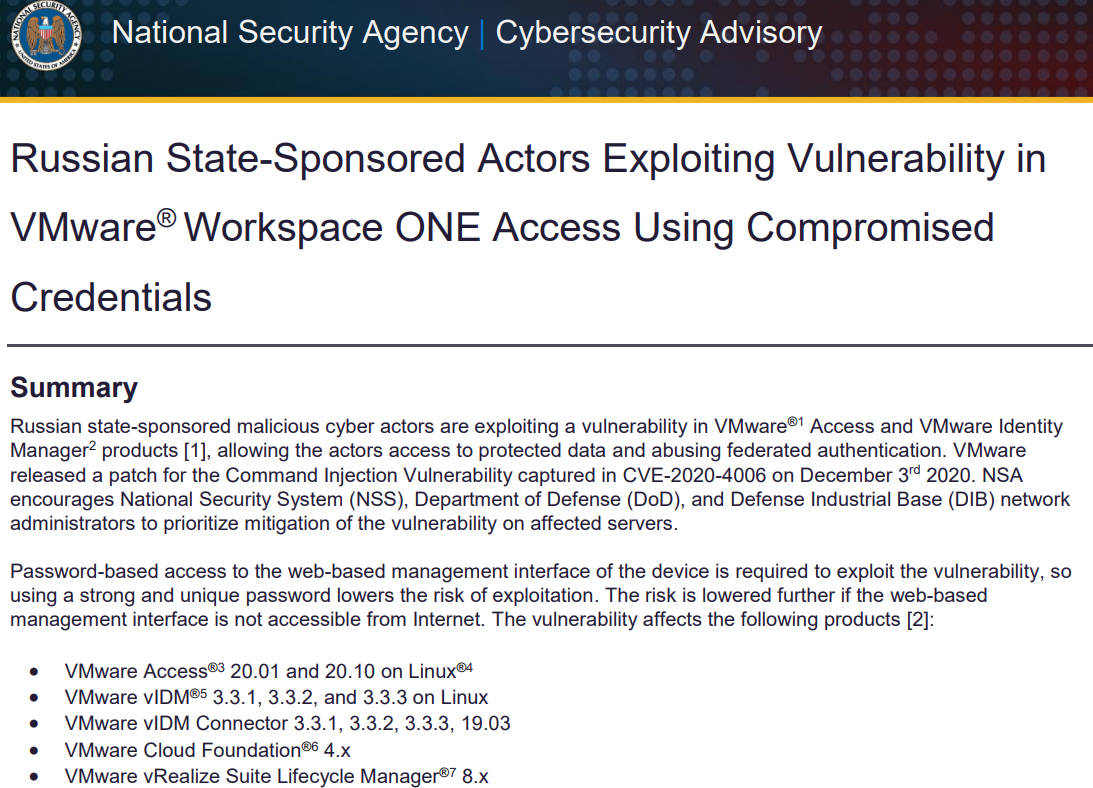VMware Flaw a Vector in SolarWinds Breach? — Krebs on Security
U.S. government cybersecurity agencies warned this week that the attackers behind the widespread hacking spree stemming from the compromise at network software firm SolarWinds used weaknesses in other, non-SolarWinds products to attack high-value targets. According to sources, among those was a flaw in software virtualization platform VMware, which the U.S. National Security Agency (NSA) warned on Dec. 7 was being used by Russian hackers to impersonate authorized users on victim networks.
On Dec. 7, 2020, the NSA said “Russian state-sponsored malicious cyber actors are exploiting a vulnerability in VMware Access and VMware Identity Manager products, allowing the actors access to protected data and abusing federated authentication.”

VMware released a software update to plug the security hole (CVE-2020-4006) on Dec. 3, and said it learned about the flaw from the NSA.
The NSA advisory (PDF) came less than 24 hours before cyber incident response firm FireEye said it discovered attackers had broken into its networks and stolen more than 300 proprietary software tools the company developed to help customers secure their networks.
On Dec. 13, FireEye disclosed that the incident was the result of the SolarWinds compromise, which involved malicious code being surreptitiously inserted into updates shipped by SolarWinds for users of its Orion network management software as far back as March 2020.
In its advisory on the VMware vulnerability, the NSA urged patching it “as soon as possible,” specifically encouraging the National Security System, Department of Defense, and defense contractors to make doing so a high priority.
The NSA said that in order to exploit this particular flaw, hackers would already need to have access to a vulnerable VMware device’s management interface — i.e., they would need to be on the target’s internal network (provided the vulnerable VMware interface was not accessible from the Internet). However, the SolarWinds compromise would have provided that internal access nicely.
In response to questions from KrebsOnSecurity, VMware said it has “received no notification or indication that the CVE 2020-4006 was used in conjunction with the…



